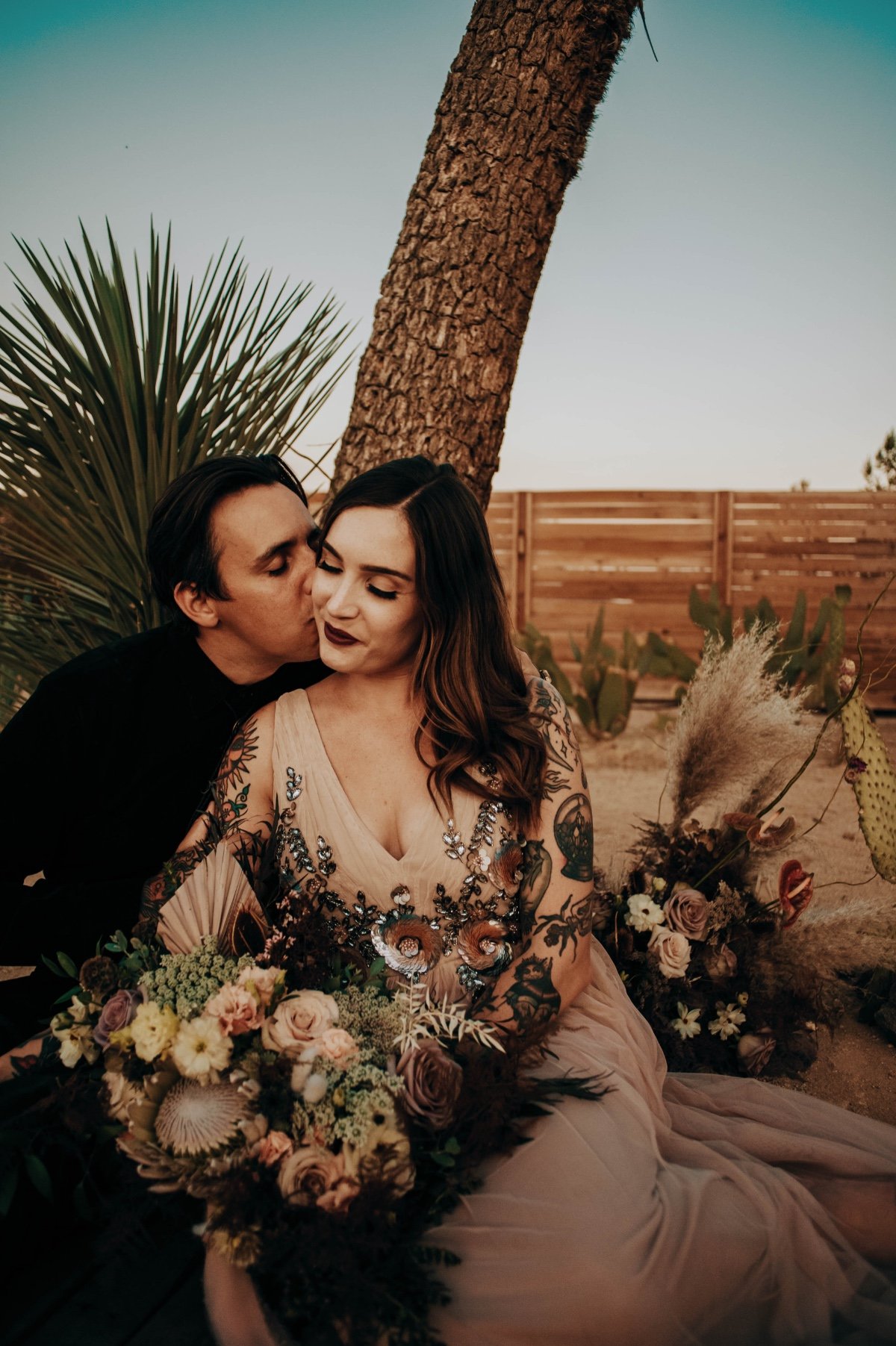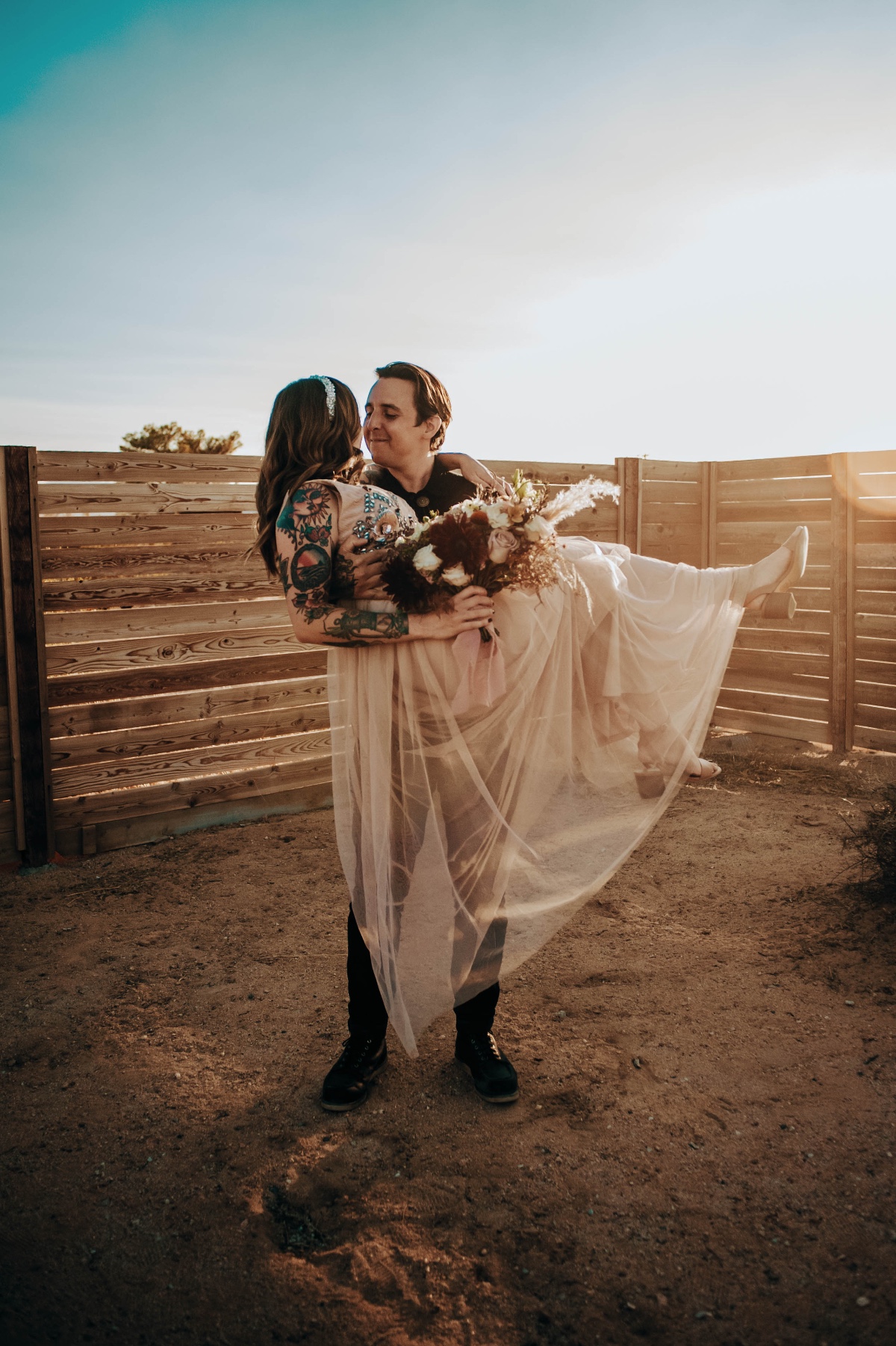








The first year of marriage is never easy, for anyone - but having your first year coincide with coronavirus craziness is a major feat. That's why we were blown away by how this couple turned a first-year gift tradition - paper - into a seriously-stunning heirloom honoring love, commitment, and quaranteaming.
Scroll through the groovy vibes of this Gram-worthy commemorative first anniversary photo shoot captured by Hearted By Gray at a 1954 homestead cabin in Joshua Tree. Vervain Floral Co. lead, Brittany Beaton, arranged her own florals and the newlyweds shared the spotlight with their adorable dogs, Luna and Cosmo. Check out all of the images in the full gallery and peep the inspiration for everything from Mrs. Beaton herself.
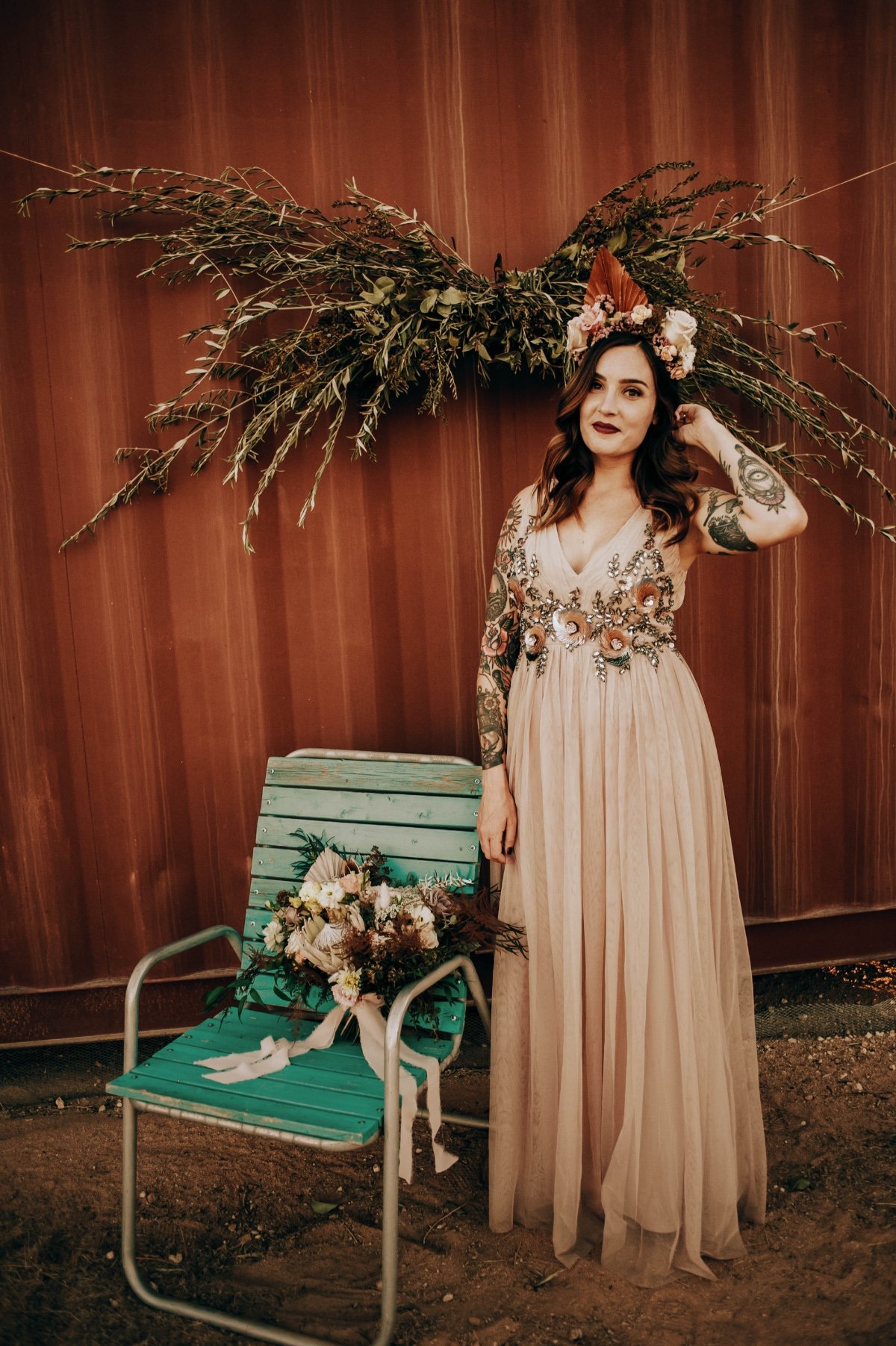



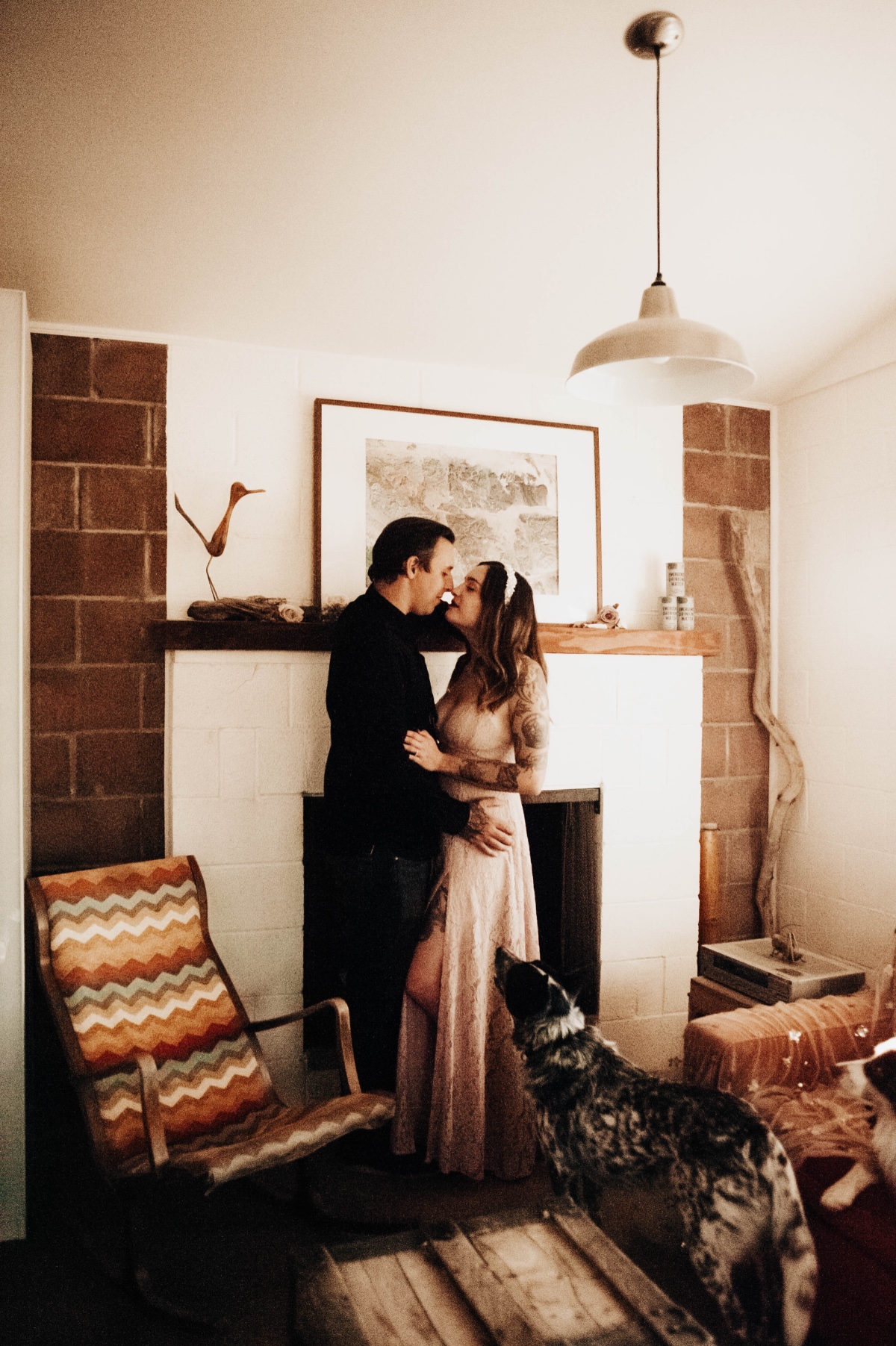
We wanted a place to get away with our fur babies and celebrate powering through a tough first year of marriage, and this 70s vibe cabin caught our eye on Airbnb.

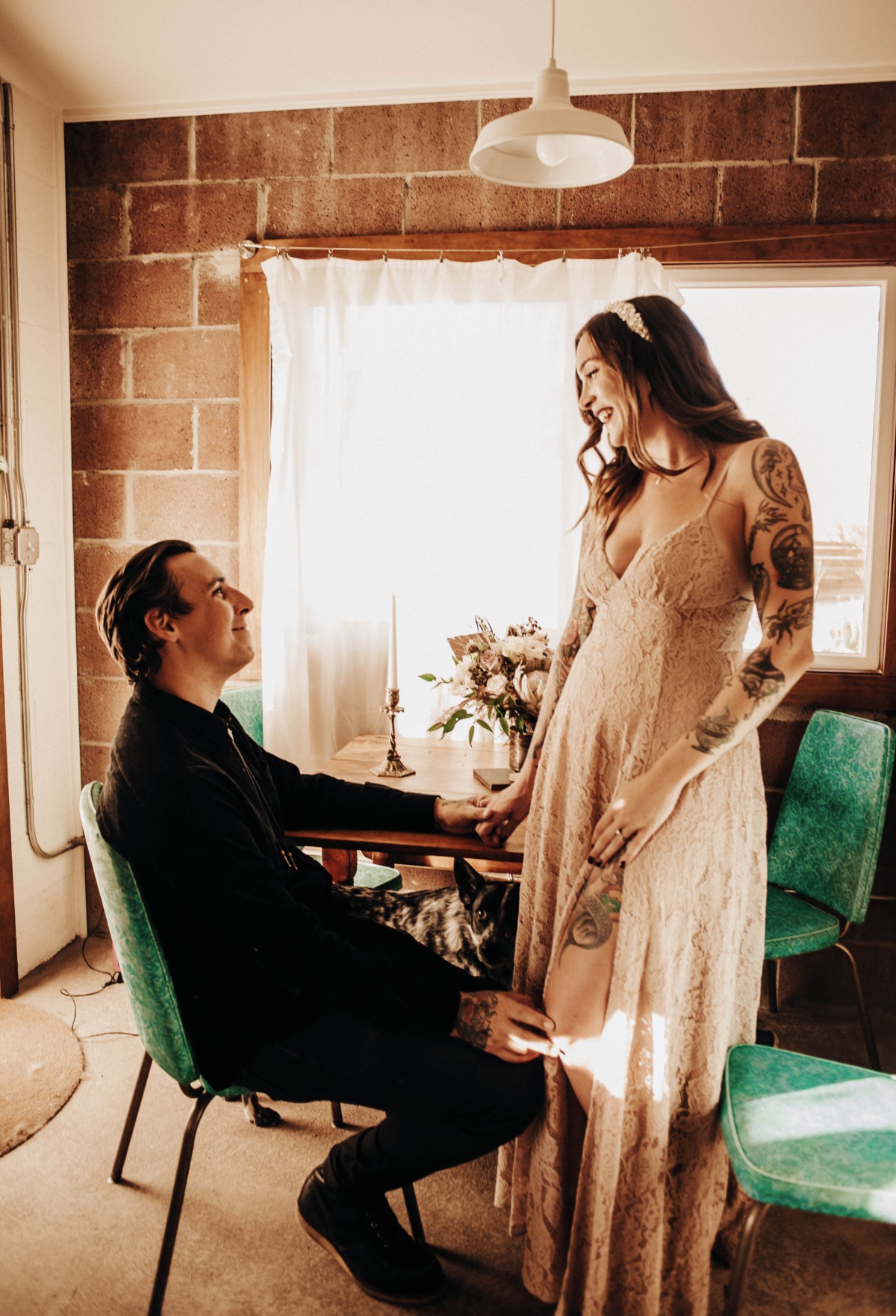
I became a florist through DIY-ing our wedding flowers a year prior and started my company Vervain Floral Co. Our wedding was beautiful, but chaotic and I still had a lot to learn on the flower front, so this shoot felt like a total departure from my original wedding flowers. Having had a whole year and more weddings under my belt, and learning so much during quarantine, I was excited to be such a big part of the creative process for this session.


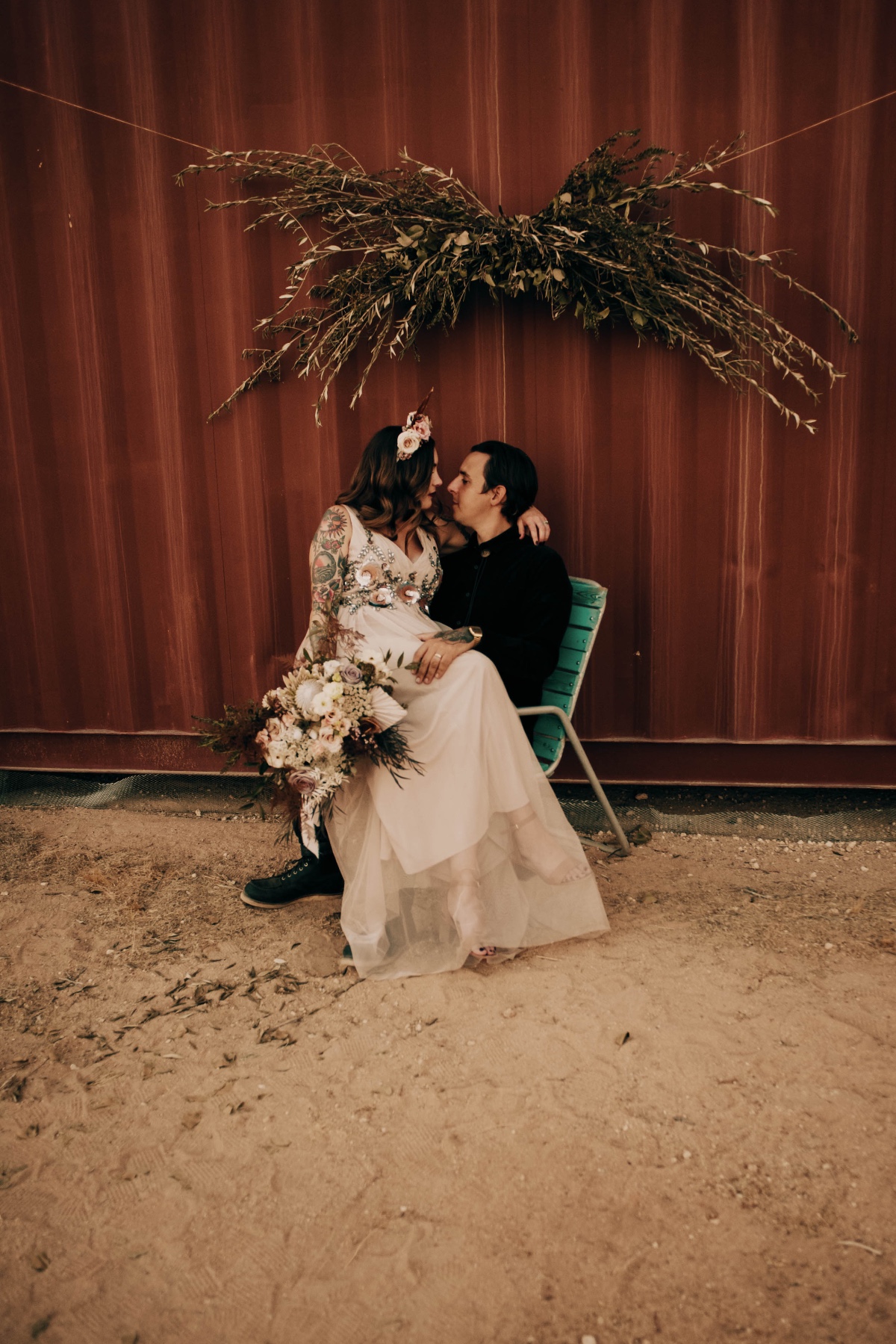

Along the way of flowering elopements and intimate weddings throughout 2019 and 2020, I met Savanah with Hearted By Gray. She was so generous to offer to shoot our first anniversary. I immediately started brainstorming and wanted a mix of fresh and dried flowers for a desert/fall feel. I had a drying rack with leftovers from our wedding still on the rack. I was pumped to incorporate our actual wedding flowers into the vision boards and eventual day-of.

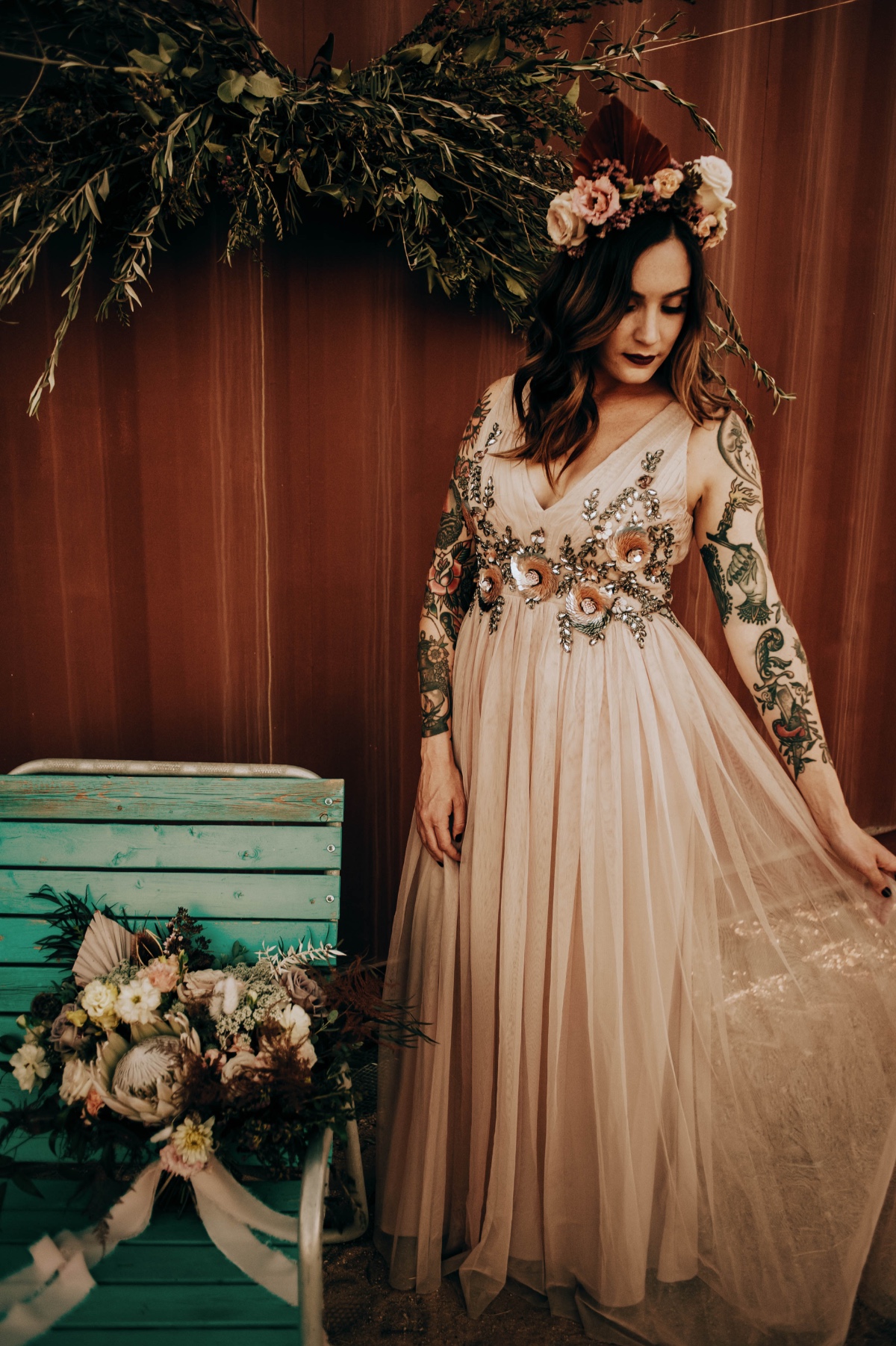

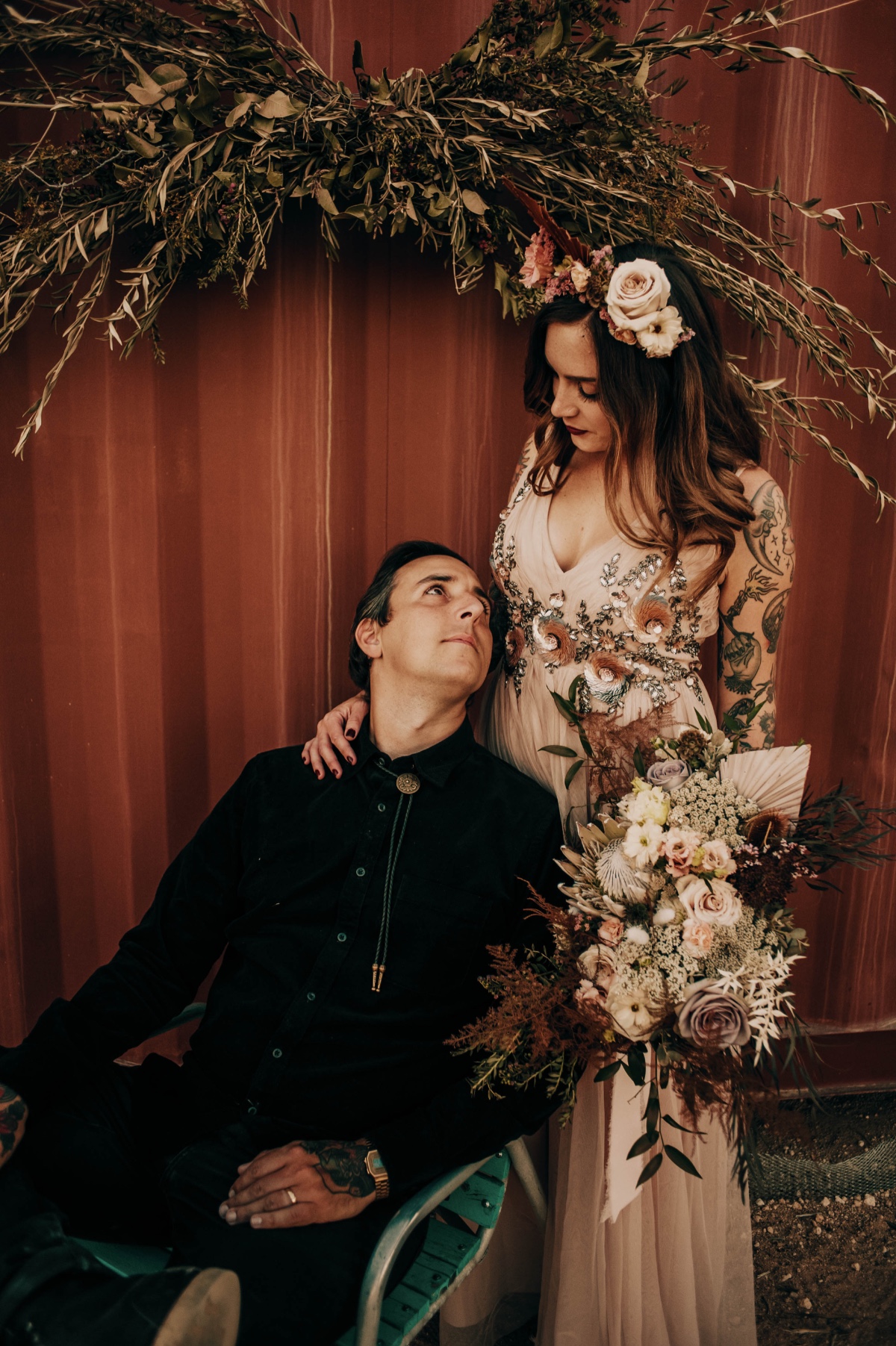

The shoot was so fun to play with texture and color, aligning our floral style with the Airbnb’s rich canvas and design. Getting a second shoot to break away from the white dress was so fun! Having those post wedding blues don’t have to be a thing. Planning a memorable first anniversary shoot should be a trend for all.

